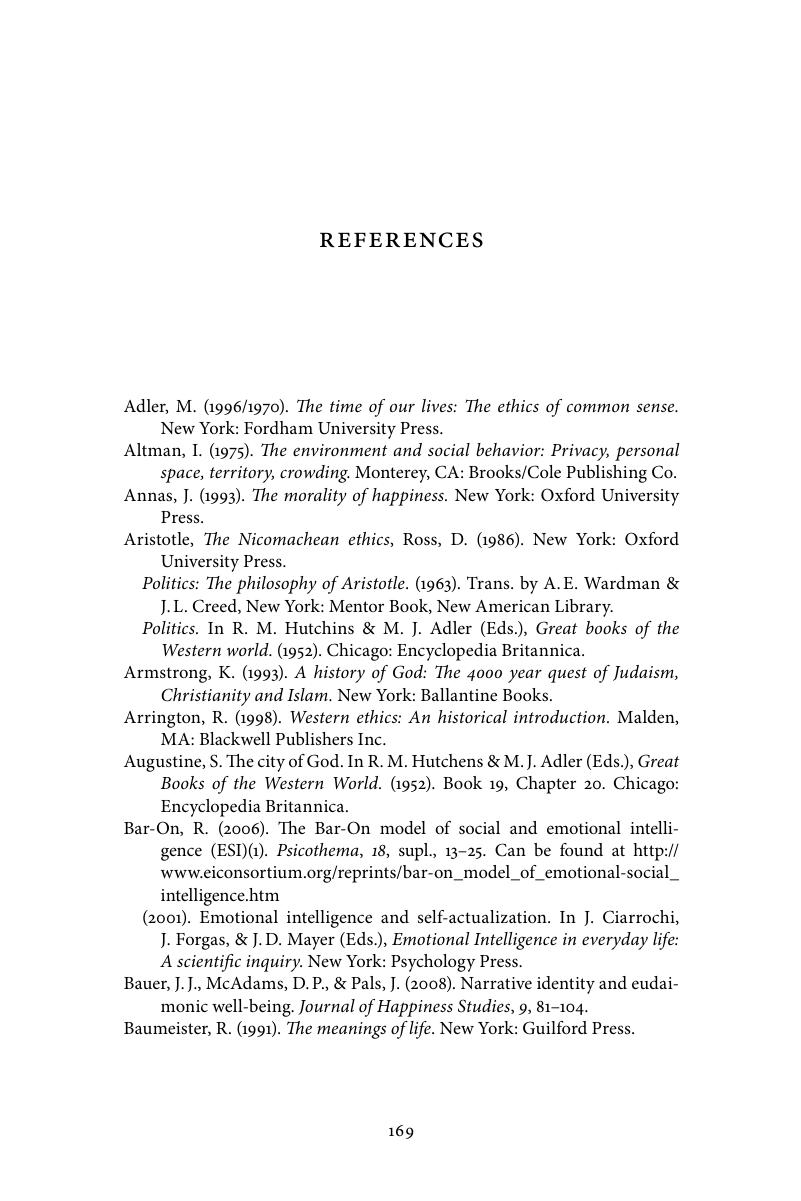Book contents
- Frontmatter
- Contents
- Preface
- 1 What Is Happiness?
- 2 Happiness as Fulfillment
- 3 Aristotle's Ethics
- 4 Actualization: Psychological Views
- 5 Finding Potentials
- 6 The Things We Need to Be Happy: Goods, Intrinsic Motivation, and The Golden Mean
- 7 Introduction to Virtue
- 8 Some of the More Important Moral Virtues
- 9 Virtue and Emotion
- 10 Early Psychological Views of Virtue and Emotion
- 11 Virtue and Emotion: Recent Psychological Views
- 12 The Physiological Basis of Virtue
- 13 Emotional Intelligence
- 14 The Development of Virtue
- 15 Psychological Views of Virtue Development
- 16 The Polis
- 17 Contemplation: A Different Kind of Happiness
- References
- Index
- References
References
Published online by Cambridge University Press: 05 June 2012
- Frontmatter
- Contents
- Preface
- 1 What Is Happiness?
- 2 Happiness as Fulfillment
- 3 Aristotle's Ethics
- 4 Actualization: Psychological Views
- 5 Finding Potentials
- 6 The Things We Need to Be Happy: Goods, Intrinsic Motivation, and The Golden Mean
- 7 Introduction to Virtue
- 8 Some of the More Important Moral Virtues
- 9 Virtue and Emotion
- 10 Early Psychological Views of Virtue and Emotion
- 11 Virtue and Emotion: Recent Psychological Views
- 12 The Physiological Basis of Virtue
- 13 Emotional Intelligence
- 14 The Development of Virtue
- 15 Psychological Views of Virtue Development
- 16 The Polis
- 17 Contemplation: A Different Kind of Happiness
- References
- Index
- References
Summary

- Type
- Chapter
- Information
- The Psychology of HappinessA Good Human Life, pp. 169 - 176Publisher: Cambridge University PressPrint publication year: 2009



